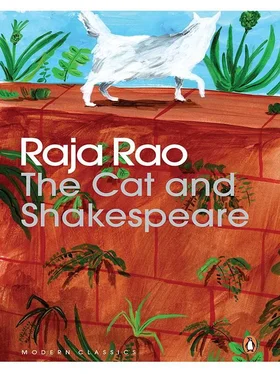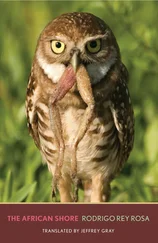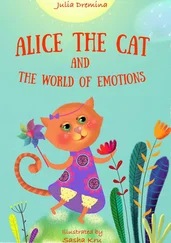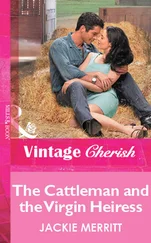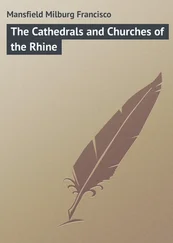Rao Raja - The Cat and Shakespeare
Здесь есть возможность читать онлайн «Rao Raja - The Cat and Shakespeare» весь текст электронной книги совершенно бесплатно (целиком полную версию без сокращений). В некоторых случаях можно слушать аудио, скачать через торрент в формате fb2 и присутствует краткое содержание. Год выпуска: 2014, Издательство: Penguin, Жанр: Современная проза, на английском языке. Описание произведения, (предисловие) а так же отзывы посетителей доступны на портале библиотеки ЛибКат.
- Название:The Cat and Shakespeare
- Автор:
- Издательство:Penguin
- Жанр:
- Год:2014
- ISBN:нет данных
- Рейтинг книги:4 / 5. Голосов: 1
-
Избранное:Добавить в избранное
- Отзывы:
-
Ваша оценка:
- 80
- 1
- 2
- 3
- 4
- 5
The Cat and Shakespeare: краткое содержание, описание и аннотация
Предлагаем к чтению аннотацию, описание, краткое содержание или предисловие (зависит от того, что написал сам автор книги «The Cat and Shakespeare»). Если вы не нашли необходимую информацию о книге — напишите в комментариях, мы постараемся отыскать её.
The Cat and Shakespeare — читать онлайн бесплатно полную книгу (весь текст) целиком
Ниже представлен текст книги, разбитый по страницам. Система сохранения места последней прочитанной страницы, позволяет с удобством читать онлайн бесплатно книгу «The Cat and Shakespeare», без необходимости каждый раз заново искать на чём Вы остановились. Поставьте закладку, и сможете в любой момент перейти на страницу, на которой закончили чтение.
Интервал:
Закладка:
Oh, Shantha, how beautiful you look in your pregnancy. You look like Panchali herself.
I am no Panchali or Damayanthi, Mother. I am just a woman. Lord, may I just be woman. Let me bear womanhood. He has given me his manhood that my womanhood be. If I were a queen I would build a wall of wattle round the garden and I would then hear the sea. The sea knows me.
White is the foam that goes gathering along the sea, white as the skin of snake, with ripples and soughs, and the last song of despair. The sea lurches and tears from inside. O Sea, where will you take me? Will you take me to the nether world of the Nagas, and tie me a chignon wound into a big bun? I shall wear a large kumkum and my ear lobes will touch my shoulders. I want to hold my child so round he would kick ten distances long. I want to love. I want to kiss my child. Lord bear me and build me a house.
Like a pirate on the high seas (at the time of the Dutch, so to say) is Govindan Nair. He can command a crew of ten Mophlas and in any language you like. He could put a bark on to the sea and say: Sea, take it, and the sea would heave and bear you to where the isles are. Truth goes over the sea, for the isles are to be blessed. The seagulls know that truth is a breath of Antarctica. Did you know, for example, that if you stand at the southern tip of Travancore and look down against your nose, straight down lies Antarctica, rich in its fissures of fishes? The fishes of Antarctica are made of gold. Gold is dug there. They discovered a tablet there some years ago which showed they probably wrote in the Dravidic tongue. Antarctica is our home. They used to grow pineapples there. You can find congealed seeds of the lotus in Antarctica. The bones of its people are all long and thin, un-Aryan — their heroes lie beside coconut shields made on tropical seas. I know whence they came. They came from Malabar. Malabar is Truth. Antarctica is only a name for Malabar. So we’ll go in catamarans and down the seas to where the isles lie. Let us go and quarry there. You’ll see stone there like ice frozen for a million years. It has the colour of human eyes. What a fine thing to build a house of eyes — of kittens’ eyes! Lord, the isle is far and I am a man. But, look, look, at the silver bark that stands. Truth goes on a ride. We’ll ride with Truth. Ancient temples lie there. Nobody worships there. The seas meet in Antarctica. Lord, help me build a house.
That’s what Govindan Nair said coming to see me the next morning. ‘Mister, I had such wonderful dreams. I wanted to build you a house in ice and give you a garden. I want to give you a large tree at the back for the child’s hammock. And in front a mango for the pickles. Then you will hear a lot of birds. We’ll get a pair of peacocks too, and your child will dance. How do you like that?’
Govindan Nair looked indeed as if he had ploughed the seas.
At about nine o’clock in the morning, while we were sitting and playfully gossipping, what should happen but somebody knocked at the door. It was my fat landlord, a towel tied around his head (for he had a bad cold — it had rained a little during the night). He was smoking a cheroot. Morning and evening it never left him. His name was Murugan Mudali and as his name said, he tapped palm trees for toddy — huge lorries and bullock carts carried the white frothing, invigorating drink, and people sang praises of themselves singing songs, and they sang him out money with which he built these houses. He was not a bad man — he was a good man. He thought of the bathroom and the kitchen with such care, every housewife blessed him for it. He even ran a hotel — called the Madhura Town Hotel — and the inmates there spoke so well of the tap that ran with hot and cold water (unknown in Trivandrum, except at the Mascot Hotel, and that is run by the government). Since the war started, he had paid as much as thirty-seven rupees a yard for the Hume water pipes, and that is black-market price. He wanted to be just. He made his seventeen per cent profit — that is what his father and his father’s father had fixed in the good old times as decent income on any investment — and the rest he gave to you: ‘I spent fourteen thousand rupees on building Kamla Bhavan’ (which you remember is the name of the house I live in) ‘and, sir, take it for eighteen and three. It satisfied you and it satisfied me.’
‘Here are seven,’ said Govindan Nair as though he were producing the money.
Usha, who had stayed on with me, was still fast asleep in my room. On hearing the sound of such large sums of money she woke, and came scampering to find out what was going on outside her dream. She knew her father lived in many, many worlds. So Usha said: ‘Father, who is this?’
‘Your grandfather,’ answered Govindan Nair, as if led by intuition. The Mudali was silent, and then with a sigh he wiped the lone tear at the corner of his eye. Why should one not be a grandfather? Is it so difficult a thing? Do not toddy pots get full in the morning, once you tie them to the tree at night? Why should not my daughter bear a child? A child, sir, a grandchild is what man must see to prove he dies well. The question, however, is, Can one die? Must one die?
‘This house will be yours, Usha,’ said Govindan Nair, and for some reason Usha started shrieking and said: ‘Mother take me away. Mother, I want to go home.’
‘What is your name, child?’ asked the Mudali.
‘Her name, sir, is Usha Devi — Usha Devi Pai,’ said Govindan Nair.
And taking Usha on his lap, he added: ‘And she will be my daughter-in-law. Shridhar is seven years and eight months old. Usha is six years and two months old. That makes a nice match,’ said Govindan Nair, stroking her hair. ‘I’ve even thought of their horoscopes. She is Sagittarius and he’s Pisces, with Jupiter in the eleventh house. She will make him live long. I want a son that lives long.’
‘Are you an astrologer too, Mr Nair?’ asked Mudali. ‘If stars govern me, then I must know the stars. If the Travancore Police Manual governs all police officers (and the public), then we must know it too. Travancore is a paradise that follows police rules. If the ration department were under the police, there would be no corruption. We’ll build a house yet, sir. Then what is your final price?’
‘My price is always final.’
‘Oho, is that so?’ Govindan Nair spoke as if to himself. ‘If Usha becomes my granddaughter I will reduce it by five or six hundred rupees.’
‘If she lives in your house, she’s your granddaughter. So make it seventeen thousand.’
The Mudali somehow consented. Once he gave his word he never changed. So it shall be seventeen thousand. Meanwhile Tangamma was handing down coffee from the wall. It was hot, steaming hot. The Mudali preferred a smoke. When the last cup came, Usha stood under the bilva tree and Tangamma had to bend low to give it to the child. Shridhar still had the same fevers.
‘When Advocate Krishnan Nair comes, send him here.’ ‘He’s already at the house, reading his newspaper,’ said Tangamma.
‘Hey!’ shouted Govindan Nair across the wall. ‘Hey, Advocate, Advocate General, future Chief Justice, please come, sir. We are ready.’
The advocate, impeccably dressed, came, down the wall as if he were coming to perform a marriage. He needed only the copper vessel and the sacred-bark bundle. Why, he even had the bundle. Didn’t you see it? Tangamma brought another cup of coffee. She bent down and gave it to Usha. Usha brought it and gave it to the Mudali. The cheroot smoked itself away. We lived in a sort of jabbering silence.
Who was talking to whom? Who talked, in fact? Nobody talked, and we all understood.
By now the cheroot was finished. The coffee, too, was finished. Govindan Nair produced a table, and the advocate took out and placed before us the three-hundred-rupee stamped document. He had written down on a piece of yellow notepaper all about the thirty cents of land in Puttenchentai belonging to Murugan Mudali, and situated in Plot No. 705, Survey number 4176, Municipal number 663. My name was mentioned as at marriage or funeral — father’s name, grandfather’s name. Usha Devi Pai was the chief character of the story, as it were. The house was bought for her and for seventeen thousand rupees. Including the yield of the coconut trees, etc., etc.
Читать дальшеИнтервал:
Закладка:
Похожие книги на «The Cat and Shakespeare»
Представляем Вашему вниманию похожие книги на «The Cat and Shakespeare» списком для выбора. Мы отобрали схожую по названию и смыслу литературу в надежде предоставить читателям больше вариантов отыскать новые, интересные, ещё непрочитанные произведения.
Обсуждение, отзывы о книге «The Cat and Shakespeare» и просто собственные мнения читателей. Оставьте ваши комментарии, напишите, что Вы думаете о произведении, его смысле или главных героях. Укажите что конкретно понравилось, а что нет, и почему Вы так считаете.
